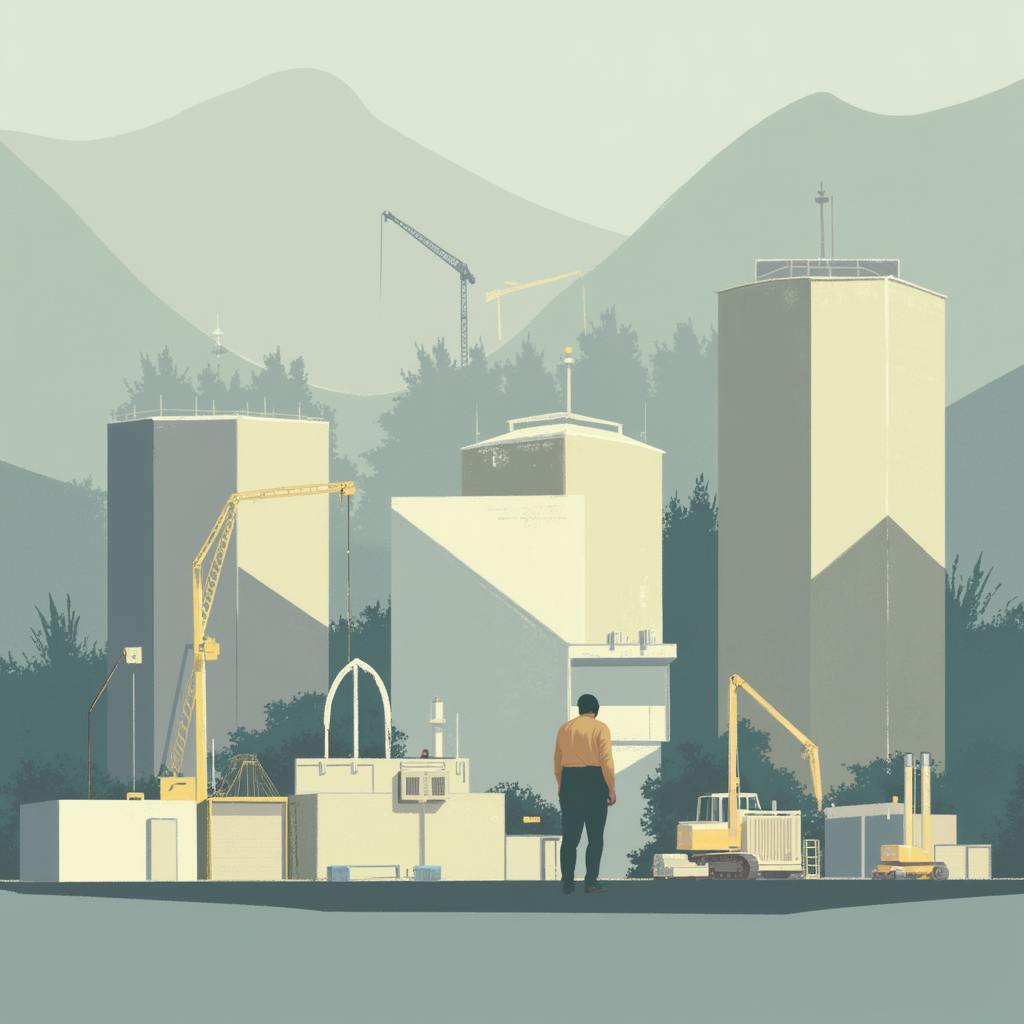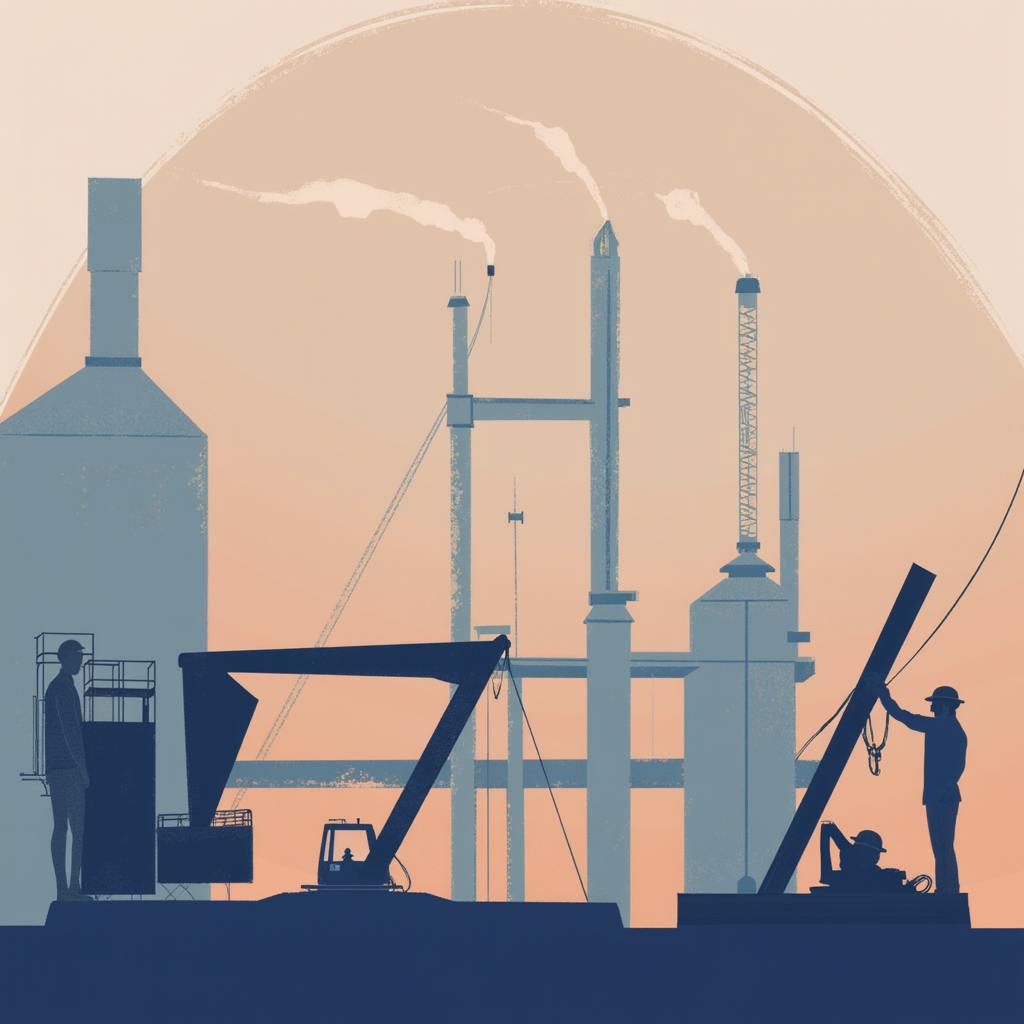The rapid advancement of artificial intelligence (AI) is fundamentally reshaping numerous sectors worldwide. From healthcare to finance, manufacturing, retail, and creative industries, AI is not only enhancing efficiency but also steering innovation in unprecedented ways. As AI technologies continue to evolve, industries affected by AI are witnessing transformative changes that promise to redefine traditional paradigms and usher in a new era of productivity.
Healthcare: Revolutionizing Patient Care
AI's impact on healthcare is profound and multifaceted. Machine learning algorithms are being utilized to analyze medical images, predict patient outcomes, and personalize treatment plans. AI-powered systems aid in early diagnosis of diseases, such as cancer, improving patient survival rates. Additionally, AI is streamlining administrative processes, reducing costs, and enhancing service delivery. These advancements address how AI will affect healthcare in the industry by improving precision and decision-making.
Finance: Enhancing Efficiency and Security
In the financial sector, AI is optimizing operations, managing risks, and personalizing customer experiences. Algorithms are capable of processing vast amounts of data in real time, assisting in fraud detection and credit scoring. AI-driven chatbots and virtual assistants improve customer service, providing quick and accurate responses to inquiries. The integration of AI in finance represents how AI will affect industry processes, leading to enhanced security and operational efficiency.
Manufacturing: Driving Smart and Sustainable Production
Manufacturing enterprises are leveraging AI to streamline production processes, predict maintenance needs, and reduce downtime. AI technologies enable the creation of smart factories where IoT devices and AI systems work in tandem to enhance productivity. Robotics, empowered by AI, automate repetitive tasks, allowing human workers to focus on more complex activities. The manufacturing industry exemplifies how AI will affect production capabilities, driving sustainable practices and innovation.

AI made with Dean Jones
Retail: Transforming Customer Experiences
AI is transforming retail by providing personalized shopping experiences and optimizing supply chain operations. AI algorithms analyze consumer behavior to offer tailored product recommendations, enhance marketing strategies, and predict demand trends. Automated systems manage inventory efficiently, reducing wastage and ensuring timely restocking. This restructuring of retail operations illustrates how AI will affect the retail industry, enhancing customer engagement and operational efficiency.
Creative Industries: Redefining Artistic Boundaries
AI is pushing the boundaries of creativity in industries such as music, art, and entertainment. AI tools assist artists in creating music, generating visuals, and crafting narratives, expanding creative possibilities. While AI cannot replace human creativity, it serves as a powerful collaborator, offering new perspectives and efficiencies. The influence of AI on creative sectors demonstrates how AI will affect the narrative of creativity, fostering novel forms of artistic expression.
Frequently Asked Questions
How will AI affect jobs in these industries?
AI is expected to automate routine tasks, altering job roles and creating demand for new skill sets. While some jobs may be displaced, AI is anticipated to generate new opportunities for those skilled in technology and analytics.
What are the ethical considerations of AI's adoption in industries?
Ethical concerns include data privacy, algorithmic bias, and accountability in decision-making. Organizations must implement robust ethical frameworks to address these issues and ensure responsible AI deployment.
How can businesses prepare for AI integration?
Businesses should invest in workforce training, redefine processes to incorporate AI capabilities, and prioritize innovation. Collaborating with AI specialists and adopting flexible strategies will facilitate a seamless transition to AI-driven operations.
FAQ: Industries Affected by AI
What are the major industries impacted by the emergence of AI technologies?
Artificial Intelligence (AI) has had a transformative influence across a broad spectrum of industries. Here are some of the major industries affected:
- Healthcare: AI is revolutionizing diagnostics, personalized medicine, and operational efficiency.
- Finance: AI is enhancing fraud detection, algorithmic trading, and personalized banking services.
- Manufacturing: Robotics and predictive maintenance are key AI applications that improve efficiency and reduce downtime.
- Retail: AI personalization engines are enhancing customer experiences and supply chain management.
- Transportation and Logistics: Autonomous vehicles and efficient route planning are major AI-driven innovations.
- Agriculture: AI is optimizing crop management through precision farming techniques.
- Entertainment and Media: AI uses data-driven insights to tailor content and predict consumer preferences.
- Energy: AI technologies are improving energy grid management and optimizing resource extraction.
How is AI transforming different sectors of industry?
AI is reshaping industries by automating complex tasks, enabling data-driven decision-making, and facilitating new business models.
- Healthcare: AI-powered imaging tools and predictive analytics help diagnose diseases quicker and more accurately. Virtual health assistants provide around-the-clock patient care and support.
- Finance: AI-driven algorithms offer real-time analysis of financial markets, improving the speed and accuracy of trades. Enhanced risk management and fraud detection systems protect financial institutions and consumers.
- Manufacturing: AI technologies streamline production lines with smart robotics and advanced monitoring systems that signal maintenance needs before breakdowns occur.
- Retail: AI in retail personalizes marketing strategies and inventory management, resulting in more efficient operations and better customer satisfaction.
- Transportation and Logistics: AI is paving the way for autonomous vehicles while optimizing delivery routes for logistics companies, leading to cost and time savings.
Can you provide specific examples of industries effectively utilizing AI?
Certainly, here are some industries effectively leveraging AI:
- Healthcare: Companies like IBM Watson are using AI for clinical decision support and drug discovery, while Google DeepMind employs AI in analyzing medical images.
- Finance: JPMorgan Chase uses AI for contract analysis, drastically reducing document processing time. Similarly, companies like PayPal deploy AI for detecting fraudulent transactions in real-time.
- Manufacturing: Siemens uses AI-driven digital twins to simulate manufacturing processes, predicting potential problems and optimizing performance.
- Retail: Amazon employs AI for its recommendation engines, ensuring personalized shopping experiences that boost sales.
- Transportation: Companies like Uber and Tesla are pioneering autonomous vehicle technology, benefiting from advances in AI and machine learning.

AI made with Dean Jones
What are the potential future implications of AI upon various industries?
As AI technologies continue to advance, they will influence industries in several profound ways:
- Increased Automation: While automation will streamline operations, it may also necessitate reskilling workforces to adapt to more AI-integrated roles.
- Data-Driven Innovation: Industries will increasingly rely on AI to extrapolate insights from large datasets, fueling innovation and enhancing competitive advantage.
- Personalization and Customization: AI will enable hyper-personalized products and services, transforming customer engagement across sectors.
- Ethical and Regulatory Challenges: As AI becomes more embedded in decision-making processes, industries will need to navigate ethical dilemmas and regulatory landscapes related to data privacy and AI bias.
- Emergence of New Industries: AI could catalyze entirely new industries focused on AI development, maintenance, and ethical governance, creating diverse business and employment opportunities.
Conclusion
The transformative impact of AI across various industries is undeniable, with healthcare, finance, manufacturing, retail, and creative sectors experiencing significant advancements. As AI continues to evolve, its integration into these industries promises to enhance efficiency, stimulate innovation, and redefine traditional workflows. Embracing AI's potential while addressing its challenges will be pivotal for businesses aiming to remain competitive and forward-thinking in an increasingly AI-driven world.

